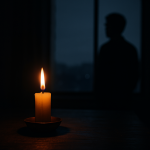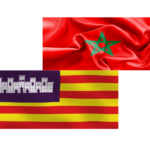
I feel compelled to say a few words about the model of coexistence that is on the verge of exploding… or of radically transforming… in Spain.
Over the past fifty years, this country has been —let’s not be afraid to say it with pride— the envy of Europe. The admiration of the rest of the world. A model of coexistence that wasn’t improvised, but rather built from the rubble of a dictatorship, from the pain of generations torn apart by war, from the humble effort of millions of men and women who chose —again and again— the path of respect, of dialogue, of multiculturalism and diversity.
Spain, that corner of Europe that knew how to open its arms to the world and say: there’s room for everyone here.
But something is cracking. What has happened in Torre Pacheco these past few days is not new. It happened in El Ejido years ago. Different places, same ghosts. In each case, there was a flare of tension, a spark that could have set everything ablaze. And yet, back then —unlike now— the institutional and civic response was firm, unanimous, clear: condemnation of the instigators, support for the victims, and the conviction that a single thorn should not destroy the garden.
Today, I’m not so sure.
Today, that garden seems overrun with thorns. And what used to be resolved with unity now becomes a battleground of digital trenches, of empty political speeches, of social networks inflamed by algorithms that understand nothing of truth, or history, or empathy.
And so, I think of Babel.
The word Babel comes from the Hebrew verb baibál, meaning “to confuse.” That was the biblical curse: that the peoples of the world could no longer understand each other. According to tradition, it was a tower built to reach the heavens, constructed by many peoples, many languages. And for daring to touch the sky —out of pride— came the punishment: chaos, division, collapse.
But maybe it wasn’t a divine punishment. Maybe it was a warning we failed to read in time.
Because Babel exists here, too. And its symbol looks far too much like what we’re witnessing now. A coexistence built by people from across the Mediterranean, from Sub-Saharan Africa, from Latin America, from the Middle East. All of them, together, raising a tower we call diverse Spain.
History tells us that in 1913, an archaeologist named Robert Koldewey found in Iraq the remains of a tower of adobe and brick, with a square base over 90 meters wide. On a clay tablet examined by Professor Andrew George just a few years ago, there is an inscription: “Temple Tower of Babylon.”
According to the research, peoples from every corner of the known world participated in its construction.
Sound familiar?
It’s a story we’ve lived here, too.
A tower built with work, hope, effort, and blending. A Babel that, instead of dividing us, had united us. Until now.
Because what has exploded in Torre Pacheco is not an isolated incident. It’s a symptom. An echo of a tower creaking. And what troubles me most isn’t the sound of collapse, but the silence of those who should be holding it up.
The younger generations —the so-called Alphas and Zetas— have grown up in a world without contact, without living memory of the past, with role models who speak not from wisdom but from virality. They’ve been educated —largely— by algorithms coded in Silicon Valley, China or Russia, and we don’t know what values are imprinted in them. Their teachers are no longer people: they’re screens.
And meanwhile, our public representatives —not all, but many— are locked in their own games of power, in sterile arguments, like children in a schoolyard. They care more about keeping their seats than about asking what kind of country they are leaving for their grandchildren.
And yet, there was another generation. Our parents. Our grandparents. People who lived through real wars. Who knew hunger. Who crossed the sea without a return ticket. Who experienced exile, prison, pain. Who knew what it meant to rebuild a country from nothing —and still smile.
Today, that legacy is evaporating between generations.
And the spark in Torre Pacheco is also a small earthquake shaking that fragile yet sacred tower of coexistence. A coexistence that we all —and I repeat, all of us— had managed to build.
Exactly 56 years ago today, on a July 7th like this one, John Lennon released a desperate cry to the world:
“All we are saying is: give peace a chance.”
I write this column in the hope that someone —perhaps thanks to an algorithm— reads it. That it reaches some young person from Generation Alpha, or Zeta, or any letter yet to be invented.
And that they understand that the message is only one. Simple. Human. Urgent:
Please, let’s live together in peace.





